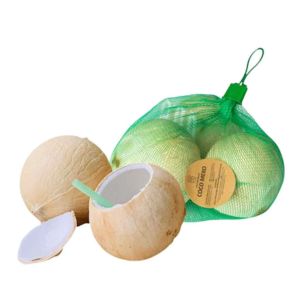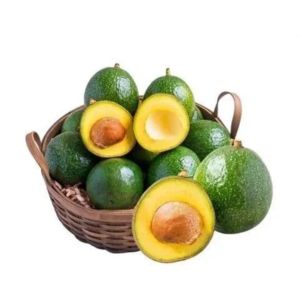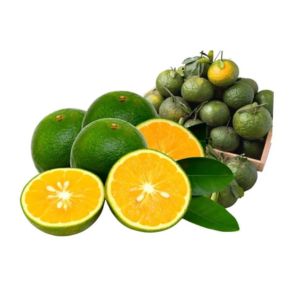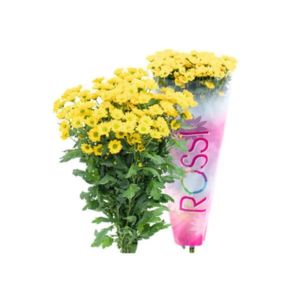New Zealand green kiwi
– Origin: New Zealand
– Quality: Imported
– Outstanding features:
Green kiwi skin is hairy, not smooth like yellow kiwi
Mild sweet taste with a characteristic mild sour taste.
Origin: New Zealand.
– Nutritional value:
Vitamin C: Abundant, 2 times higher than green kiwi, helps strengthen the immune system, is anti-oxidant, and protects the skin from the harmful effects of sunlight.
Vitamin E: Helps protect cells from damage and supports cardiovascular health.
Potassium: Helps regulate blood pressure, good for the heart.
Fiber: Helps the digestive system stay healthy and supports weight loss.
Folic acid: Important for pregnant women, helps develop fetal brain.
In addition: It also contains many other nutrients such as vitamin K, magnesium, phosphorus, copper,…
– Benefits of using kiwi:
Improve immune system.
Good for heart health.
AIDS digestion.
Helps lose weight.
Good for skin.
Good for eyes.
Prevent cancer.
– How to use kiwi:
Can be eaten directly, peeled or peeled.
Add to salads, smoothies, yogurt.
Make jam, cakes, ice cream.
– How to choose delicious kiwi:
You should choose kiwis with smooth skin, uniform golden brown color, without roughness, scratches or brown spots.
Use your fingers to gently press the kiwi. If the kiwi fruit is moderately soft and slightly elastic, it is a good kiwi fruit.
At Farmers Market, the top criteria are high quality products, clear origins, and bringing the best experience to customers.
– To preserve kiwi for a long time and maintain freshness, you need to note:
+ Temperature:
Room temperature: If kiwis are not yet ripe, leave them at room temperature until ripe. Avoid direct sunlight.
Refrigerator: Once the kiwis are ripe, place them in the refrigerator at a temperature between 0°C and 4°C. At this temperature, kiwi can be stored for 5 to 7 days.
+ Humidity:
Kiwis need to be stored at high humidity to maintain freshness.
You can place kiwis in a plastic bag or container with a lid to keep them moist.
Avoid letting kiwi come into direct contact with water because it will spoil the kiwi.
+ Division:
You should divide kiwi into separate fruits when storing in the refrigerator to avoid crushed kiwi.
Avoid letting kiwi come into contact with other fruits such as apples, bananas, pears, etc. because these fruits can produce ethylene gas, causing kiwi to ripen faster and easily spoil.
+ Storage tips:
To ripen kiwi faster: You can put kiwi in a paper bag with apples or bananas.
To ripen kiwis more slowly: You can wrap kiwis with parchment paper or newspaper.
To freeze kiwis: You can cut kiwis into pieces and put them in freezer bags. Frozen kiwi can be stored for several months.
– Note:
Do not store kiwi at too high a temperature because it will cause the kiwi to overripe quickly.
Do not store kiwi for too long because it will cause the kiwi to lose its flavor and nutrients.
– How to use kiwi
+ Eat directly:
This is the simplest and most popular way to enjoy kiwi.
You can wash the kiwi, peel or peel it (depending on your preference) and cut it into bite-sized pieces.
Kiwi can be eaten with yogurt, honey or added to salads and smoothies.
+ Make smoothies:
Kiwi is a great ingredient for making smoothies.
You can combine kiwi with other fruits such as bananas, strawberries, apples,… to create delicious, nutritious smoothies.
+ Making jam:
Kiwi jam is a delicious accompaniment to bread or cookies.
To make kiwi jam, you need to prepare kiwi, then cook with sugar and water until thick.
– Can pregnant women and children eat kiwi?
+ Pregnant women
Kiwi is a fruit that contains twice as much vitamin C as lemon. Besides, pregnant women who eat kiwi also get more fiber, vitamin E, carbohydrates, energy and other minerals.
Pregnant women eating kiwi can meet up to 140% of the recommended daily dose of vitamin C. It can be said that because of its high vitamin C content, kiwi becomes a very good fruit for pregnant women and fetuses.
For pregnant mothers before and after giving birth, vitamin C helps the mother’s body absorb iron better to prevent anemia
Vitamin C in kiwifruit helps form neurotransmitters, a substance that is important for brain function.
Vitamin C has strong antioxidant properties, helping to protect RNA and DNA from the harmful effects of free radicals.
+ Feed your baby kiwi when he is 8 to 10 months old because of its sour nature. If your baby has previously shown food allergies or diaper rash, consider introducing fruit between 10 and 12 months.
Vitamin C: Kiwi is rich in vitamin C, providing 230% of the recommended daily intake of vitamin C. Vitamin C helps strengthen the immune system, absorb iron from other foods and heal wounds.
Fiber: Kiwi provides 16% of the fiber needed for children. Fiber helps reduce constipation and maintain a healthy digestive system.
– Notes when enjoying:
Pregnant mothers should only eat about 2-3 kiwi fruits per day.
Kiwi is highly acidic, so don’t eat too much as you could get mouth sores, tongue ulcers and rashes.
If you have genetic allergies, gastritis or other problems, you should avoid eating kiwi during pregnancy.
People with allergic rhinitis are often at risk of allergic reactions to kiwi.
Be the first to review “New Zealand green kiwi” Cancel reply
Related products
fruits and flowers
fruits and flowers
fruits and flowers
fruits and flowers
fruits and flowers
fruits and flowers
fruits and flowers
fruits and flowers













Reviews
There are no reviews yet.